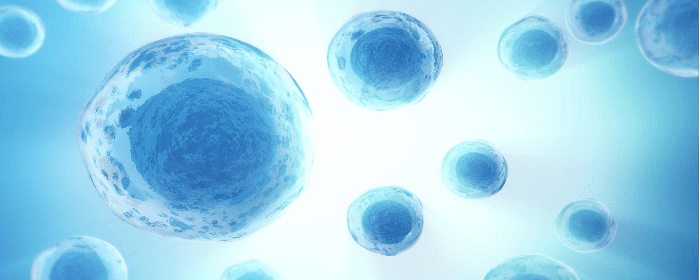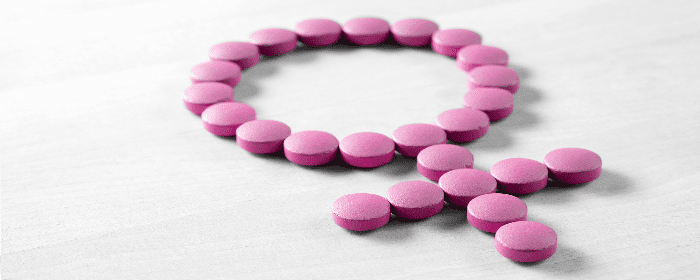
by Stemedix | Mar 8, 2021 | Parkinson's Disease
Receiving a diagnosis of any chronic condition can be overwhelming, and Parkinson’s disease (PD) is certainly no exception. While it’s normal to feel a range of emotions after you’re first diagnosed, you might also feel a sense of relief to have a concrete diagnosis. And, with an accurate diagnosis, you can also begin your pursuit of a comprehensive PD management plan, which begins with the following steps.
Team Up with a Specialist
First and foremost, you’ll want to seek out a medical professional who specializes in movement disorders. These professionals focus on emerging treatments and can help you manage any persistent symptoms which aren’t responding to medications. You can still see your primary care provider, but these neurologists have extensive knowledge of Parkinson’s therapies and are well-worth researching.
Allow Time to Adjust
There are countless resources online to help you navigate the newly diagnosed phase, but don’t feel as if you have to learn everything right away. Give yourself time to process the news first. Then, consider joining online groups or local communities to learn more about PD management. The National Parkinson Foundation and Michael J. Fox Foundation for Parkinson’s Research are great resources to start with.
Share on Your Terms
In time, you’ll likely want to tell everyone in your close circle about your diagnosis. Telling colleagues about your PD can help squash rumors and may simplify matters such as adjusting your schedule for doctors’ appointments. You’ll also want to have ongoing conversations with your partner and children to keep them in the loop about how you’re feeling and what they can do to support you.
Stay Active
Research supports regular exercise for people with Parkinson’s Disease and even shows that physical activity can help improve PD symptoms. People who started exercising 2.5 hours a week earlier after their diagnosis experienced a slower decline than their peers, for instance. While there’s no precise formula for exercising for PD, experts suggest a routine that blends stretching, cardio, and strength.
Stay Social
It can be tempting to withdraw from activities and others after being diagnosed with Parkinson’s Disease. Yet, mental and social wellness can decline when you disengage. To that end, you may want to consider staying in the workforce if you’re still active in your career. You should also continue pursuing the social activities you enjoy, and may even want to think about joining new clubs or programs. These outlets can help promote mental and emotional wellbeing. If you want to learn more about your options after being newly diagnosed with Parkinson’s Disease then contact a care coordinator today!

by admin | Aug 7, 2020 | Parkinson's Disease, Stem Cell Therapy
Parkinson’s disease is a chronic, progressive neurological disorder for which there is no cure. The motor symptoms of Parkinson’s disease include resting tremor, slowness of movement, shuffling gait, and “masked facies” (i.e. muted facial expressions). Over time, patients with Parkinson’s disease may experience cognitive problems such as memory loss, impaired judgment, and poor planning. Later in the illness, these cognitive symptoms may progress to a condition called Parkinson’s dementia. Patients may also develop depression, anxiety, pain syndrome, visual hallucinations, and sleep disturbances. The disease gets progressively worse until patients succumb from complications of the disease after about 10 years on average.
Current treatments for Parkinson’s disease are only able to reduce symptoms—no drug therapy can modify or stop the disease from progressing. Parkinson’s disease is caused by the destruction of brain cells in the substantia nigra; substantia nigra cells provide the neurotransmitter, dopamine, to various locations in the brain. Consequently, most standard treatments are designed to improve dopamine neurotransmissions such as levodopa, dopamine agonists, and MAO B inhibitors. Deep brain stimulation, a procedure in which electrodes are inserted deep within the brain, has helped reduced tremor. There are diet suggestions that may help symptoms or increase appetite.
Ideally, physicians would be able to treat the cause of Parkinson’s disease rather than simply control symptoms. Dr. Salem provides an interesting review of the potential uses of stem cells for Parkinson’s disease. Indeed, he argues that stem cell transplantation has the potential to replenish lost cells in Parkinson’s disease.
The first step, according to Dr. Salem, is to identify the appropriate type of stem cell for use in Parkinson’s disease. He reviews the main types, namely embryonic stem cells, neural stem cells, induced pluripotent stem cells, and mesenchymal stem cells, discussing their pros and cons. The scientist provides a convincing case for why mesenchymal stem cells may be the best choice. For cell-based therapy, he writes, mesenchymal stem cells have two major effects: a trophic effect and the ability to differentiate into a broad spectrum of cells for the replenishment of lost cells.
Indeed, mesenchymal stem cells can be induced to become functional dopamine neurons, the very cells that are destroyed by Parkinson’s disease. Moreover, when mesenchymal stem cells are placed into the brains of mice or humans with Parkinson’s disease (or, in the case of mice, a model of the disease), most of the stem cells remained in the injection site for at least 10 weeks after transplantation. The stem cells increased neuronal plasticity (neurorescue), cell survival, dopamine levels, and the formation of new neuron progenitor cells (neurogenesis). At the same time, stem cells decreased inflammation, gliosis (a growth of non-neuronal brain cells called glia), and death signaling.
Of course, clinical trials will be needed to continue the study of the safety and efficacy of stem cell transplantation for Parkinson’s disease, but the chance of having a treatment that actually goes to the cause of the disease is an exciting possibility.
Reference: Salem NA (2019) Mesenchymal Stem Cell-Based Therapy for Parkinson’s Disease. Int J Stem Cell Res Ther. 6:062. doi.org/10.23937/2469-570X/1410062.

by admin | Oct 21, 2019 | Health Awareness, Parkinson's Disease
Parkinson’s disease (PD) is a progressive nervous system condition which is diagnosed in more than 50,000 Americans each year. The disease affects movement and occurs when nerve cells in the brain don’t produce enough of the brain chemical dopamine.
Patients with Parkinson’s disease experience the death of neurons involved with the movement, which may lead to symptoms such as tremors, mobility challenges, slow movement, muscle rigidity, and speech changes. Cell death may be partially caused by a mutation for the protein α-synuclein (αS). While the mutated protein tends to cluster in neurons, ultimately causing their death, the normal protein resists clumping.
Researchers are now investigating whether estrogen could help to protect these movement neurons against clumping in people with PD.
Parkinson’s disease is most commonly seen in men and postmenopausal women, both of whom have low estrogen levels. While researchers still aren’t sure precisely how estrogen may act as a protective agent to safeguard movement neurons, studies have shown that brain-selective estrogen improved PD symptoms in mice. In the studies, the mice treated with estrogen therapy showed a higher rate of surviving neurons, as well as benefits in motor performance. It’s therefore suspected that estrogen treatment could be an effective therapy for delaying and reducing symptoms.
The exact causes of Parkinson’s disease are still being researched. While the condition can be genetic, most cases do not appear to run in families. As with many conditions, experts believe that environmental factors, including exposure to chemicals, could contribute to the disease. While there is still further research to be done both on the disease in general and the potential benefits of estrogen therapy, these most recent findings suggest that estrogen could hold promise as an emerging treatment for men and menopausal women with Parkinson’s disease.

by admin | Oct 15, 2019 | Health Awareness, Parkinson's Disease
For some time now, gut health has been suspected to play a key role in chronic conditions. We now know that there is significant interaction between the body’s immune system and bacteria in the intestinal tract, and researchers have become increasingly interested in how the immune system ties into conditions such as Parkinson’s disease (PD). But how do these factors all connect?
The Potential Role of Gut Infections in Parkinson’s Disease
Emerging research suggests Parkinson’s disease could have an autoimmune component. Autoimmune conditions occur when the body’s immune system confuses healthy cells for pathogens and sets out to destroy them. A small percentage of PD cases are caused by mutations in genes that code for the proteins PINK1 and Parkin, which help clear out damaged mitochondria. Individuals with these mutations are more likely to develop PD before the age of 50.
Yet, when scientists removed PINK1 and Parkin from mice in a recent study, thereby giving them the same mutations linked to Parkinson’s disease in humans, they did not develop the disease. The research team theorized that factors other than these genetic mutations alone would likely be required for PD to develop. In particular, they believed exposure to specific germs could trigger Parkinson’s disease in individuals with this mutation.
To test this theory, the mice were exposed to E. coli. As the researchers suspected, they experienced PD-like symptoms later in life, along with a loss of dopaminergic neurons in the brain. This suggests that in individuals with certain genetic mutations, gut infections can trigger an immune system response which targets healthy cells.
What the Findings Mean
This research has also led scientists to the conclusion that in people without functioning PINK1 and Parkin, intestinal infections can trigger PD, thereby demonstrating a clear gut-brain connection in the disease. While this doesn’t suggest that all PD cases are autoimmune, it does pose the theory that there could be an immune system element in some cases. Although the mystery surrounding Parkinson’s disease still remains, this discovery points to an interplay between the gut, genetics, and brain, which may ultimately pave the way for further developments in the realm of treatment.

by admin | Sep 20, 2019 | Parkinson's Disease, Progressive Supranuclear Palsy, Stem Cell Research, Stem Cell Therapy, Supranuclear Palsy
Progressive supranuclear palsy, also known as PSP, is a disorder of the brain that gets worse over time (progressive neurodegenerative disorder). Many progressive supranuclear palsy symptoms are similar to Parkinson’s disease. These include rigidity, slowness of movement, cognitive (thinking) problems, difficulty speaking, and difficulty swallowing. While people with Parkinson’s disease can have an unsteady gait and “freeze,” these symptoms are much more prominent in people with progressive supranuclear palsy. Likewise, people with PSP have a particular eye problem called supranuclear gaze palsy, which causes PSP patients to have difficulty moving their eyes in certain directions.
Despite the similarities between PSP and Parkinson’s disease, there are no treatments for progressive supranuclear palsy as they are for Parkinson’s disease. Drugs like levodopa help reduce tremors and rigidity in people with Parkinson’s, but they have been largely ineffective in people with PSP. Some PSP patients may benefit from drugs like levodopa, but most experience severe visual hallucinations or other side effects, which causes them to stop the medication. Because there are so few treatments, patients with progressive supranuclear palsy rely on supportive care measures such as occupational and physical therapy, nutritional support, and palliative care.
To address this critical need, researchers are testing mesenchymal stem cells for their ability to treat progressive supranuclear palsy. Dr. Margherita Canesi and her colleagues selected five patients with progressive supranuclear palsy. Her research team used bone marrow from healthy volunteers to select healthy mesenchymal stem cells. The researchers then infused the mesenchymal stem cells into patients in a single infusion.
While patients with PSP normally deteriorate rapidly, the patients who received a single stem cell treatment remained stable for at least six months after treatment. Some patients still maintained function at the end of the study (12 months). All patients tolerated the treatment well, there were no major side effects. While the study was small, it suggests that stem cell treatment was able to change the natural course of the disease. Based on these encouraging results, the authors have set their sights on a randomized, placebo-controlled phase 2 study to further test mesenchymal stem cell treatments in patients with progressive supranuclear palsy. We look forward to their results with great enthusiasm.
Reference: Canesi, M. et al. (2016). Finding a new therapeutic approach for no-option Parkinsonisms: mesenchymal stromal cells for progressive supranuclear palsy. Journal of Translational Medicine. 14, Article number: 127 (2016).

by admin | May 1, 2019 | CBD, Parkinson's Disease
Recently a video went viral in which a man with Parkinson’s disease (PD) tries cannabis for the first time, placing a drop of cannabinoid oil (CBD oil) under his tongue. Within minutes, his symptoms improve significantly: the dyskinesia (involuntary muscle movements) disappears almost entirely, and his voice returns. The significant reaction to the drug begs the question: can cannabis be used to help manage PD?
Clinical Studies on Medical Marijuana for PD
Unfortunately, as the Parkinson’s Foundation points out, the clinical trials on using marijuana for PD have been incredibly varied. Some studies use as few as five participants, and as a result, fail to meet the minimum research standards needed to garner support among the medical community. That hasn’t stopped patients from seeking the treatment themselves, however: 95% of neurologists say their patients have asked for a medical marijuana prescription.
Moreover, groups like The Michael J. Fox Foundation, among others, have called for the reclassification of marijuana, which could make it easier to conduct research. Currently, marijuana is classified as a Schedule I drug by the federal government. Drugs within this category are deemed to have a high potential for abuse and no known acceptable medical applications. To complicate matters further, there is currently a lack of standardized or known doses for CBD, as well as variable concentrations of the active ingredient. Nonetheless, in low doses, CBD appears to be well tolerated, though it poses side effects such as cognitive changes, nausea, and dizziness.
How Does CBD Work?
We know that the chemicals in marijuana react with the brain’s cannabinoid receptors. What researchers are still working to figure out is precisely how CBD effects these receptors. Trials show mixed results: while some patients have experienced improved motor and non-motor symptoms, others did not experience improvement. Limited studies show decreases in psychosis and tremors, as well as improvements in quality of life.
Could Cannabis Be Right for You?
While incorporating any form of cannabis will likely not replace PD medications, it’s possible that patients may experience a reduction in symptoms with CBD use. If you’re considering this treatment, talk to your doctor, who can recommend a treatment regimen based on your needs.
Visit our website for available hemp extract products. Click here







 St. Petersburg, Florida
St. Petersburg, Florida
